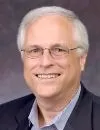Jamel Shorts pushed through his University of Maryland Global Campus (UMGC) education while working full time, graduating last December at the age of 21 with a degree in cybersecurity. But despite his discipline and drive, he admits to sometimes feeling overwhelmed with doubts and the challenge of getting everything done on time.
When that happened, though, he knew whom to call: Rachel Payne, a UMGC success coach trained to help students stay on track and to intervene when she sees trouble developing.
“I could always reach out to her to get any sort of help with any sort of issue,” Shorts said. “She would say, ‘Reach out to me at any time.’”
While UMGC has always been sensitive to the needs of military and adult learners with career and family responsibilities, in the past two years it has restructured its approach to student support, putting greater emphasis on helping those who are struggling, no matter the reason.
UMGC students come from a variety of backgrounds and demographics, and many at first are unfamiliar with a university environment. They may have struggled in school when they were younger and think they are not “college material.” Military servicemembers may not know how classes will fit with their schedules or accommodate deployments, and those challenges are often complicated—for those stationed abroad—by geopolitical or environmental crises that can upset their lives, families, and studies.
“When I came here, one of the things I heard over and over was that, while curriculum and content matter, the reason nontraditional students may not succeed is usually because life happens, not because they can’t figure out the content,” said UMGC President Gregory Fowler.
For nontraditional students, he added, their studies are never going to be more than their third priority, after family and work. If the university insists that students drop everything to focus on their education, they will never be successful.
Success coaches address this reality.
“A success coach is basically like a Sherpa,” Fowler said. “I can’t climb the mountain for you, but I can climb it with you, and I have enough experience climbing this mountain to be able to tell you how to get to the top.”
UMGC has always had an advising system. Prior to 2021, though, advisors would wait for students to reach out seeking help, and whichever advisor was free would take the call. Students often complained that, if they called more than once, they would have to explain the situation over again to a different advisor, and they might even get conflicting advice.
Perhaps they had been assigned to the wrong class, or they weren’t engaged in their classroom. They might not understand how to continue their classes when deployed or what to do when confronted with problems at work or at home. Some—feeling embarrassed or overwhelmed—might not reach out for help at all. Too often, students would drop out before they could be helped.
The new success coaching model changed that, said Senior Vice President and Chief Student Affairs Officer Martina Hansen. It assigns a cohort of students to a specific coach who then develops individual relationships with each student, striving to understand their goals, their personal challenges, and the path that they have chosen. Success coaches make sure that each student understands that someone is there to be their biggest cheerleader and advocate, focused on helping them navigate the university.
“I use the word surgical, making sure the coaches know exactly what a student wants to do,” Hansen said. “What does that path look like? What courses need to be updated every term so that a student can get to graduation as quickly and successfully as possible? That is important, because the longer it takes someone to finish, the less likely they are to complete.”
At the same time, UMGC created first-term classes to teach incoming students what it takes to succeed in college, to help them explore career goals, and to make sure they know how to access university services.
“It was important that the faculty created a safe space where students could learn what it took to be a student here,” Hansen said. “You have to give them the space to fail a little bit and then be coached back on the right track.”
Beyond the first term class, faculty members are also being trained to keep close watch on their students’ performance, she said. If students have not logged into class or are not engaging in the classroom, faculty members are prompted to send them an e-mail or text to find out what is wrong and what it will take to fix it.
These initiatives are getting more students to graduation—or, as Fowler put it in his Sherpa analogy, to the top of the mountain. Taken together, they form a cornerstone of the university’s mission—to inspire hope, empower dreams, and transform lives . . . one student at a time.
This article appears in the 2024 issue of Achiever magazine.
